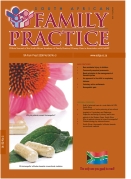South African Homeopaths’ Attitudes towards Conventional Medicine
Keywords:
conventional medicine, homeopathic medicine,
Abstract
Alternative health encompasses a wide field that includes diagnosis, treatment and intervention. There are more than 150 treatment modalities as well as many diagnostic modalities. The most common reasons for making use of alternative medicine include increased diagnostic and therapeutic options, psychological stress diffusion and better doctor-patient relationships. People are increasingly making use of alternative medicine. A study that included 1 500 American adults determined that 33% had made use of alternative medicine in 1990 with an increase to 42% in 1997. Between 20% to 65% of the European population makes use of alternative medicine. In 1997, the Royal London Homeopathic Hospital saw a 33% increase in referrals. In South Africa, more homeopathic medication has become available and the sales thereof increase yearly by 15% to 20%. Homeopathy is the second largest field that is registered with the South African Complementary Medical Association. Previous studies have shown that conventional practitioners have a positive attitude towards alternative medicine. One study showed that all Glasgow general practitioners have at some time referred patients to the Glasgow Homeopathic Hospital. The attitude of homeopaths towards conventional medicine is, however, not known. Therefore, the aim of this study was to investigate South African homeopaths’ attitudes towards conventional medicine.
Published
2008-03-26
Section
Scientific letters
By submitting manuscripts to SAFP, authors of original articles are assigning copyright to the South African Academy of Family Physicians. Copyright of review articles are assigned to the Publisher, Medpharm Publications (Pty) Ltd, unless otherwise specified. Authors may use their own work after publication without written permission, provided they acknowledge the original source. Individuals and academic institutions may freely copy and distribute articles published in SAFP for educational and research purposes without obtaining permission.

